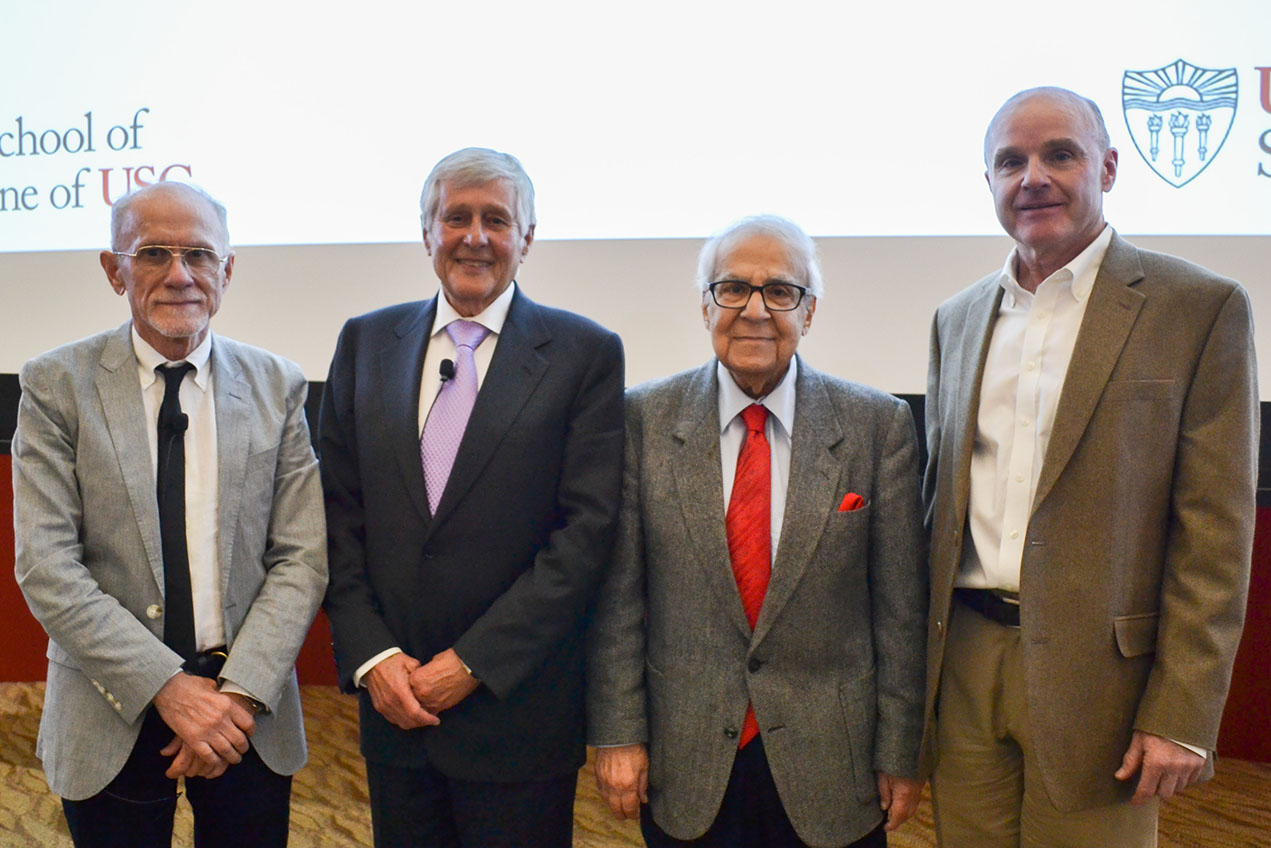The Meira and Shaul G. Massry Prize, which started in 1996, recognizes outstanding contributions in biomedical science. The 2019 prize has been awarded to Stanley T. Crooke, MD, PhD, of Ionis Pharmaceuticals, and Ryszard Kole, PhD, emeritus professor from the University of North Carolina at Chapel Hill. The researchers are recognized for their work in the development of oligonucleotides targeting messenger RNA as treatments for rare diseases without cures. As part of the award, Crooke and Kole visited the Health Sciences Campus on Oct. 24 to deliver lectures about their work.
In introducing the speakers, Tom Buchanan, MD, professor of medicine and vice dean for research at the Keck School of Medicine of USC, noted that the work honored by the prize represents profound advances in biomedical science.
“Of the topics awarded in the past, 59% were subsequently recognized by a Nobel Prize in chemistry or physiology in medicine,” Buchanan said.
Crooke discussed having spent the past 30 years working on RNA-targeted therapeutics. Today, there are seven RNA-targeted drugs approved, including five from Ionis, where Crooke works. These drugs work by interacting with messenger RNA to prevent translation of a targeted gene.
“It has been an interesting journey,” he told the audience.
According to Crooke, there are 11 more drugs in development, including treatments for Huntington’s disease, Alzheimer’s and cancer.
“The technology is ready for primetime; it’s no longer about rare diseases,” he added.
Kole’s address described the pathways of discovery of gene expression over the past 40 years. In 1977, when he was a post-doctoral researcher, a discovery about RNA splicing at Cold Spring Harbor Laboratory inspired him to jump into the field whole-heartedly. He continued to study RNA splicing in rare diseases like thalassemia, a deadly genetic disease where patients do not produce betaglobin.
His work hasn’t always been easy. When he submitted a paper on oligonucleotide-induced RNA repair, he was told that the system wouldn’t work, and if it did work it would be too expensive to ever be useful.
“But we didn’t give up,” Kole said, “I was stubborn — and we just kept going.”
Eventually, Kole was able to pioneer a drug for Duchenne’s Muscular Dystrophy, which was granted accelerated approval by the FDA in 2016.
“What we are asking the cell to do is take a foreign piece of RNA in the blood stream, get it into the cell, into the nucleus and rearrange everything to restore correct splicing,” Kole said, “It seems like no way, it can’t be true.”
— Katharine Gammon


